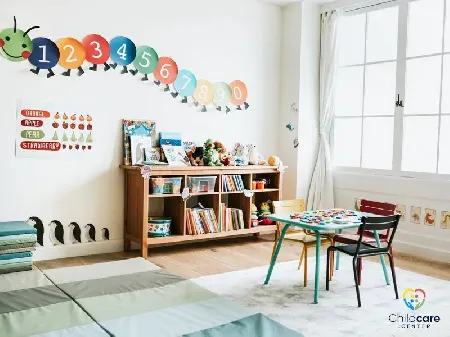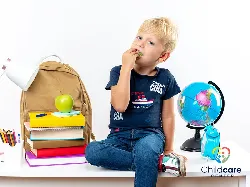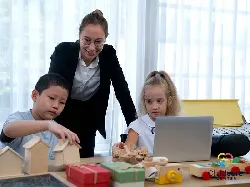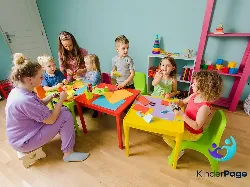Advanced Tactics for Effective Communication with Parents in Childcare

In the dynamic landscape of childcare, mastering effective communication with parents is crucial for enhancing the quality of care and creating a supportive environment for children. This skill is key to building strong, trust-based relationships between providers and parents, facilitating collaboration, and ensuring that each child benefits from care tailored to their individual needs. Through thoughtful engagement and mutual understanding, childcare professionals can significantly impact a child's developmental journey, underlining the importance of communication in fostering a thriving childcare setting.
Strengthening Trust Through Communication with Parents
At the heart of any successful childcare setting is a strong foundation of trust between providers and parents. Trust is not just a byproduct of effective communication; it's the very essence that sustains and enriches the partnership. Establishing this trust requires a deliberate effort to understand and address the needs, concerns, and aspirations of parents. By prioritizing open, honest, and consistent communication, childcare providers can create a reassuring environment that not only welcomes feedback but actively seeks it. This commitment to transparency sets the stage for a more collaborative and responsive approach to childcare, where parents feel valued, heard, and actively involved in their child's development.
The Importance of Being Interested: Genuine Engagement with Parents
Effective engagement with parents starts by genuinely caring about their and their children's lives. Childcare providers should approach conversations with curiosity, respect, and empathy. This approach not only improves interactions but also builds trust and cooperation, leading to a strong, positive partnership.
The Role of Humility in Fostering Collaboration
Adopting a stance of humility can dramatically transform the dynamics of parent-provider interactions. Recognizing that parents are the primary experts on their children encourages a more balanced and inclusive conversation about the child's care and development. Childcare providers, while experts in their field, can benefit immensely from viewing parents as co-contributors rather than mere recipients of information. This approach not only enriches the provider's understanding of the child's needs but also empowers parents, making them feel respected and valued as integral partners in their child's care.

Enhancing Communication Strategies for Childcare Success
In the realm of childcare, adopting advanced strategies for communication with parents is crucial for nurturing successful partnerships between providers and parents. Effective communication with parents transcends the mere exchange of information; it involves a strategic, thoughtful approach that respects parents' roles, values, and expectations. By being intentional in our communication , childcare providers can create a more inclusive, supportive, and engaging environment. This entails not only sharing important updates and developments but also actively seeking parents' insights and fostering a culture of mutual respect and collaboration.
Respect as the Cornerstone of Effective Communication

Respectful communication is the cornerstone of any strong parent-provider relationship. Acknowledging parents as their child's first and most important teachers is fundamental. Even when disagreements arise, maintaining a respectful demeanor ensures that conversations remain productive and focused on the child's best interests. It's essential to communicate in ways that honor parents' knowledge and experiences, thereby reinforcing their critical role in their child's learning and development. This respectful approach opens the door to more meaningful and constructive dialogues, enhancing the overall childcare experience.
Inviting Participation: Encouraging Parental Involvement
Encouraging parental involvement through inviting communication practices significantly strengthens the childcare community. By openly soliciting parents' perspectives and inviting them to share their insights, childcare providers can foster a deeper sense of belonging and partnership. Strategic questioning, attentive listening, and genuine interest in parents' experiences and expectations can transform passive interactions into active collaborations. This level of engagement not only enriches the childcare environment but also bolsters parents' confidence in the care their children are receiving. For more strategies on engaging families and fostering effective partnerships, visit the National Association for the Education of Young Children (NAEYC) resource on family engagement .
Mastering the Art of Listening: A Key to Understanding
Listening is an art that, when mastered, can profoundly impact the quality of communication with parents in childcare. Effective listening goes beyond hearing words; it involves understanding the emotions and intentions behind them. By fully engaging in communication with parents, providers can gain deeper insights into the children’s needs, preferences, and developmental stages. This understanding is crucial for tailoring care and educational strategies that align with each child's unique context, thereby enhancing the childcare experience for all involved.
Techniques for Active Listening in Childcare Settings

Active listening techniques are invaluable tools for childcare providers, enabling them to fully comprehend and respond to parents' concerns, suggestions, and feedback. This involves maintaining eye contact, using affirmative body language, and providing verbal acknowledgments that convey genuine interest and understanding. By allowing for pauses and reflecting on what is being said, providers can foster a communicative environment where parents feel truly heard and valued. Such an approach not only strengthens relationships but also facilitates more effective problem-solving and collaboration.
Overcoming Barriers to Communication for Inclusive Engagement
Inclusive engagement in childcare settings requires a proactive approach to overcoming communication barriers. Recognizing and addressing challenges related to language differences, cultural nuances, and accessibility issues is paramount. By employing diverse communication methods and leveraging technology, providers can ensure that all families, regardless of background or abilities, have equal opportunities to engage in meaningful conversations about their child's care and development. This commitment to inclusivity enriches the childcare community, promoting a sense of unity and mutual respect.
Positive Communication: Beyond Addressing Concerns
Shifting the focus of communication with parents from problem-solving to sharing positive observations and achievements can dramatically enhance the parent-provider relationship in childcare. By regularly highlighting children's successes, milestones, and joyful moments, providers can foster an atmosphere of optimism and appreciation. This positive communication strategy not only strengthens bonds with families but also contributes to a supportive and encouraging environment for children to grow and thrive. Incorporating these values into your childcare mission statement can further solidify this approach as a core part of your childcare's identity.
The Power of Positivity in Building Relationships
Emphasizing the positive aspects of children's experiences and development plays a critical role in building strong, resilient relationships between parents and childcare providers. Celebrating achievements, no matter how small, and sharing uplifting stories can significantly impact parents' perceptions and satisfaction with the childcare service. This positivity fosters a collaborative spirit, encouraging parents and providers to work together in nurturing the children’s growth and well-being.
Creative Ways to Maintain an Open Line of Communication
Adopting creative strategies to maintain an open line of communication with parents ensures that vital information is shared efficiently and effectively. Utilizing digital platforms, social media, and personalized communication methods can enhance engagement and ensure that parents are well-informed about their child's day-to-day experiences and developmental progress. By being innovative in communication efforts, childcare providers can cater to the diverse needs and preferences of families, fostering a vibrant, connected community.
Tailoring Communication to Support Developmental Stages
Tailoring communication with parents to recognize the unique needs and developmental stages of children is essential in childcare. By providing age-appropriate updates and insights, providers can offer valuable support to families, guiding them in understanding and contributing to their child's growth. This approach ensures that communication is not only relevant but also impactful, enhancing the collaborative efforts between parents and providers in supporting children's development.

Essential Daily Updates for Infants and Toddlers
For families with infants and toddlers, receiving daily updates about feeding, diapering, nap times, and developmental milestones is invaluable. These updates provide parents with a clear picture of their child's day and well-being, enabling them to feel connected and reassured. By focusing on these essential aspects of care, childcare providers can strengthen the trust and confidence parents place in their services, fostering a nurturing and supportive environment for the youngest members of the childcare community.
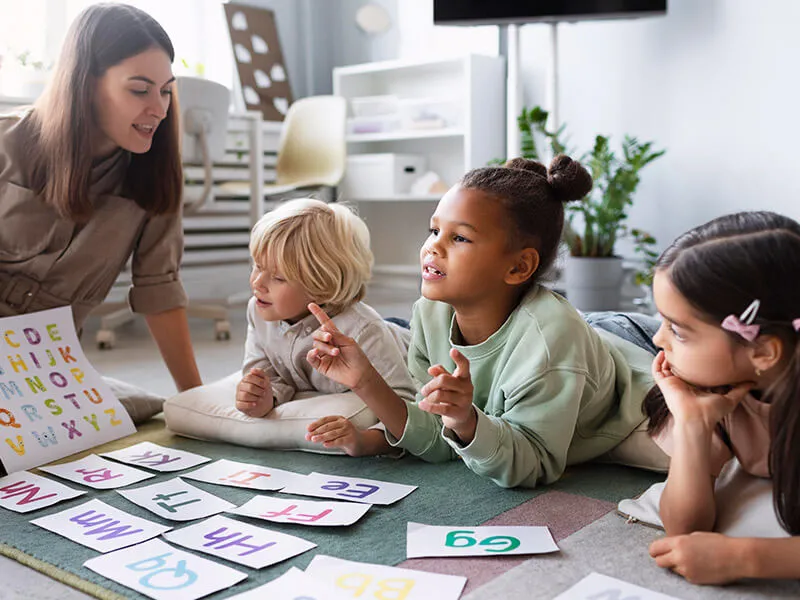
Engaging Preschoolers: Fostering Growth Through Feedback
As children grow into the preschool years, communication with parents should evolve to include feedback on social interactions, learning progress, and emerging interests. This information is crucial for parents to understand and support their child's developmental journey. Engaging parents in discussions about their child's growth and learning experiences encourages a partnership approach to education, where families and providers collaborate to ensure that children achieve their full potential.
Conclusion
In the dynamic landscape of childcare, fostering robust communication channels with parents stands as a cornerstone for creating a nurturing, transparent, and supportive environment for children. Through strategies that prioritize respect, active listening, positive reinforcement, and the smart integration of technology, childcare providers can significantly enhance their interactions with families.
This commitment to effective communication not only strengthens the bond between parents and providers but also plays a critical role in the developmental journey of every child. As we continue to navigate the complexities of childcare, embracing these principles of communication will ensure that we are not just meeting the immediate needs of families but are also laying down the groundwork for a future where every child has the opportunity to flourish in a collaborative, understanding, and responsive setting.


